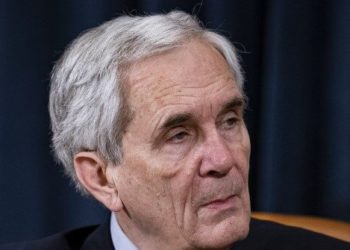The concept of an income tax has long created debate and anxiety among the citizens of the fossil fuel-rich countries in the Persian Gulf. But no nation actually introduced one until last week, when Oman announced that it would apply a 5 percent tax starting from 2028 on those who make more than 42,000 Omani riyals, or around $109,000.
Officials said that the new tax was intended to promote social equity and reduce the country’s dependence on oil and gas, which made up around 70 percent of the state revenues last year. But Oman could also become a testing ground in the region, where the royal families that have ruled for decades have used their resource wealth to subsidize citizens’ lives while granting them minimal political participation.
Since oil was discovered in the Arabian Peninsula the 1930s, the Gulf’s royal families have run an authoritarian form of government that involves sharing some fossil-fuel revenue their citizens through public-sector employment, subsidies and other state benefits — while keeping a significant portion of it for themselves, through mechanisms that are typically opaque.
The families have combined that strategy with varying degrees of political repression, enabling them to maintain stable, generally peaceful states while limiting political participation.
But that model has come under pressure over the past decade. Oil revenue has fluctuated in several Gulf countries, and their governments have also spent more. They are looking for ways to diversify their economies beyond fossil fuels.
In Saudi Arabia, one of the first major policy changes by Mohammed bin Salman, now the crown prince and de facto ruler, was to cut energy subsidies. That sent citizens rushing to gas stations to fill their tanks before price increases took effect.
In Oman, which is led by a hereditary monarch, Sultan Haitham bin Tariq, officials were quick to emphasize that the new policy would have a minimal impact on most citizens. The economy minister, Said Al-Saqri, said on state television that the tax would affect only 1 percent of the population.
One reason is that there are fewer high earners in Oman than in other Gulf States, such as United Arab Emirates and Qatar.
The new law also includes “broad exemptions that significantly reduce the burden,” said Said Al-Mahrami, a prominent Omani economic consultant. Education fees, health-care costs and many other expenses would all be deductible, he said.
The tax would mainly affect high-earning foreign residents, potentially pushing some to leave, said Karen E. Young, a political economist focused on the Gulf at Columbia University’s Center on Global Energy Policy.
Still, some Omanis questioned the timing of the announcement, which was made in the middle of a regional war between Iran and Israel.
“At first glance, the income tax appears to be a positive step — if its goal is to fund and improve public services, and if it excludes low-income groups,” said Samia Murad, 31, an Omani woman who runs a nonprofit youth group. “But the real concern is whether it might be misused, becoming an added burden on citizens or a factor that discourages investment in Oman.”
Once an income tax is introduced, the government could easily raise the rate or lower the threshold for taxable income, analysts said. In 2018, Saudi Arabia imposed a 5 percent value-added tax to increase revenue from a source other than oil. When oil prices plummeted in 2020, officials tripled that rate, framing it is a temporary measure until the economic situation improved. The rate never went back down.
Ahmed Kashoub, an Omani economist, said that the tax was necessary to diversify the state’s revenue streams, and he acknowledged that short-term challenges were inevitable.
“But over time, the law can support better public services and more balanced economic development — provided the government ensures transparency about how tax revenues are allocated,” he said.
The policy could lead to a recalibration of the relationship between citizens and their government, Dr. Young said. Once a government begins to collect revenue from its citizens, some may start to ask more serious questions about how their leaders are spending that money, wanting to hold them accountable. The decision is a signal to the population that as the country prepares for a future beyond oil, “you, as a citizen and a resident, have a responsibility for the changes that need to take place,” she said.
Vivian Nereim is the lead reporter for The Times covering the countries of the Arabian Peninsula. She is based in Riyadh, Saudi Arabia.
The post The First Income Tax in the Persian Gulf Signals a Changing Economic Reality appeared first on New York Times.




